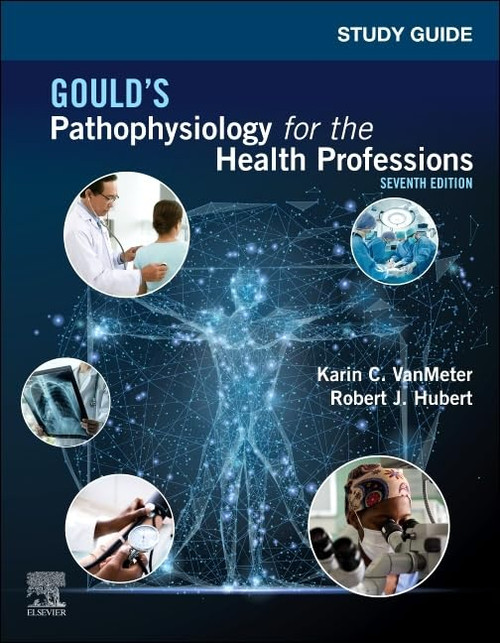A concise, easy-to-understand introduction to the fundamentals, Pathophysiology for the Health Professions, 4th Edition helps you learn to identify disease processes and disorders. Authors Barbara Gould and Ruthanna Dyer continue the tradition of a text known for its readability and vivid, full-color illustrations, updated with the latest research and clinical advances. Unique Challenge, Think About, and Emergency Treatment features help in applying the material to real-life situations. No matter which area in the healthcare field you may enter, this book provides essential preparation for conditions encountered in clinical practice.
- Concise and readable approach includes the information students need without overwhelming them, even if they have a limited scientific background.
- Unique Challenge feature asks What can go wrong with this structure or system? as a way to help students facilitate progress by using previously learned knowledge.
- Unique Think About boxes help with self-evaluation, test preparation, and review.
- Unique Emergency Treatment boxes list basic emergency measures; these can be modified to fit specific professions, established protocols, or practice settings.
- Research boxes discuss new developments, problem areas of pathophysiology, and complications associated with research.
- Warning Signs boxes summarize conditions that may develop in patients.
- Diagnostic tests and treatments are included for each of the major disorders.
- Case studies in each chapter provide a basis for discussion or can be used as an assignment.
- Study questions offer a self-assessment on the material in each chapter.
- Ready References in the appendix provide a quick lookup for anatomic terms, conversion tables, abbreviations and acronyms, diagnostic studies and tests, and more.
- A companion Evolve website includes web links, learning activities, content updates, and more.
- New content on the causes and trends related to disease, new drugs, technology, and treatment.
- Coverage of obesity and its complications, including an in-depth discussion of metabolic syndrome.
- Multiple disorder syndromes in the aged client.
- DNA, genetics and the Human Genome Project with current research on protein pathways in health (proteomics) and the implications for drug treatment and disease causation.
- Coverage of autism.
- Updated content on the H1N1 virus and communicable diseases; HIV, cancer causation, and immunology; and substance abuse to reflect common practices in the use of illicit (street) drugs as well as abuse of prescription medications.
- Case studies revised to emphasize chronic diseases, prevention, and acute care, and to apply to a wider range of health professions.
- Appendices reorganized for improved reference and lookup.











